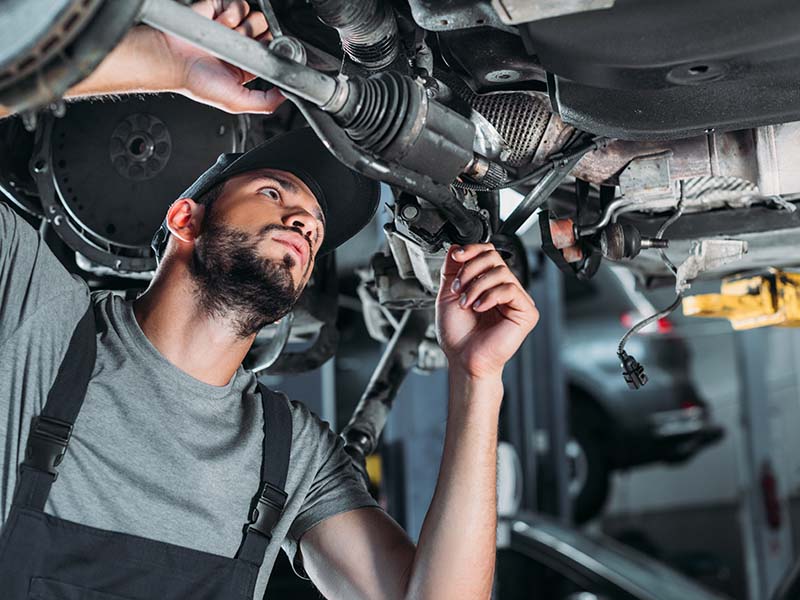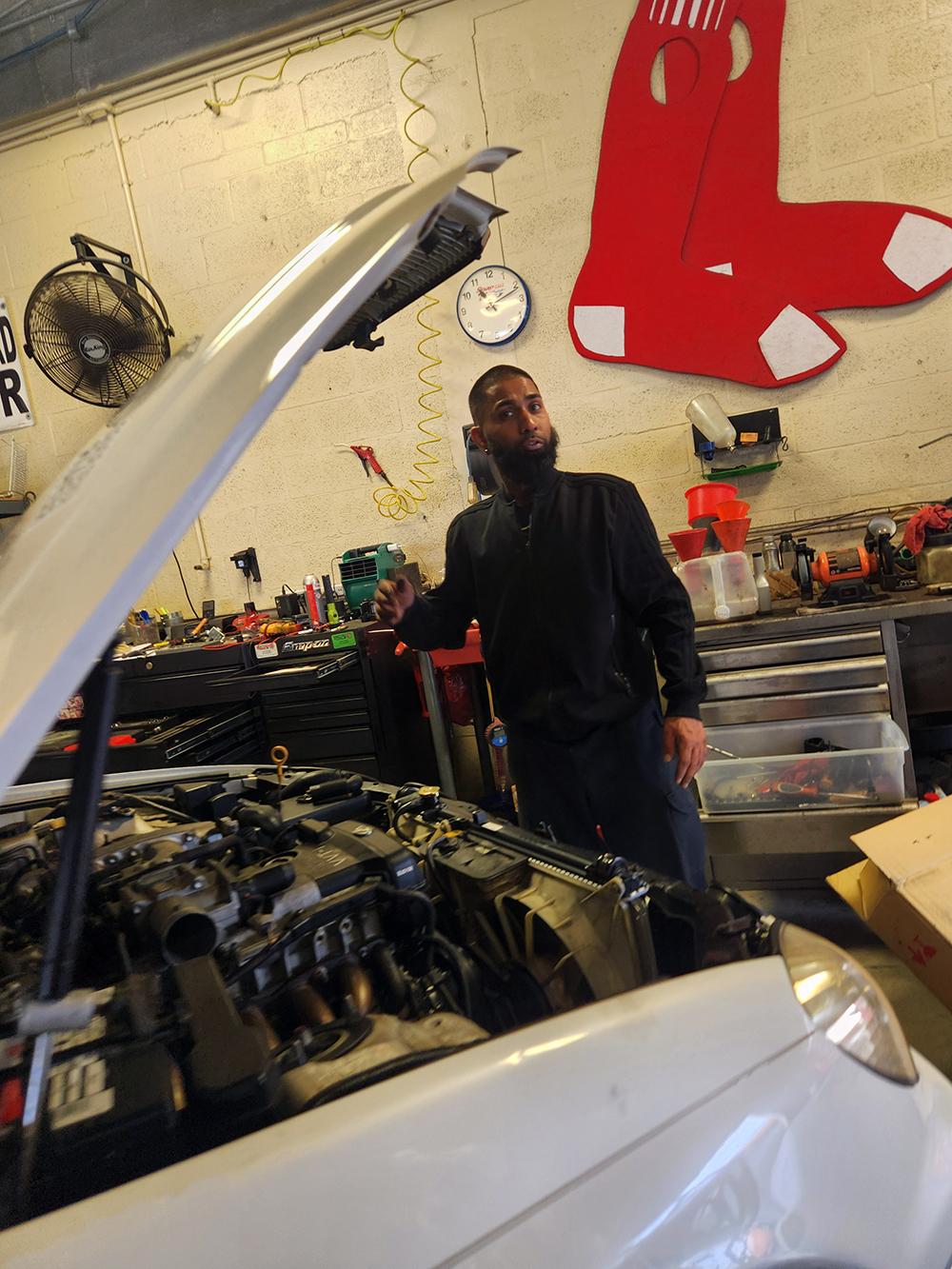All Categories
Featured
Unanticipated car fixings can disrupt your financial resources, making vehicle repair service insurance an appealing option for lots of motorists. Whether you're a new automobile owner or managing an older car, recognizing the information of auto repair insurance policy and protection is vital for making informed choices.
What Is Automotive Fixing Insurance Coverage?
Automotive fixing insurance policy, typically called mechanical break down insurance coverage (MBI), is a plan made to cover the costs of changing or fixing automobile components after a breakdown. Unlike common auto insurance coverage, which addresses accident-related damages, repair service insurance coverage concentrates on mechanical concerns unassociated to accidents.
What Does It Cover?
The details protection varies depending upon the strategy and the insurer you select. Generally, repair service insurance coverage covers:
Engine Fixes: Including components like the timing belt, pistons, and cyndrical tube heads.
Transmission Fixes: Covering the transmission and relevant components.
Electric System: Attending to issues with generators, starters, and onboard computer system systems.
Cooling and Home Heating Systems: Such as radiators, thermostats, and cooling units.
![]()
Steering and Suspension: Including shocks, shows off, and power guiding systems.
However, policies commonly leave out regular upkeep, wear-and-tear things like brake pads or tires, and cosmetic damages.
![]()
That Requirements Automotive Repair Work Insurance Policy?
While repair work insurance policy isn't required, it can be helpful for:
Proprietors of Older Autos: If your automobile runs out warranty, repair insurance coverage can provide comfort against expensive malfunctions.
Frequent Travelers: High-mileage motorists are most likely to experience mechanical issues, making protection a beneficial investment.
Vehicle Drivers of Expensive Models: Luxury or specialty lorries frequently have greater repair work costs, which can be reduced by insurance coverage.
Secret Benefits
Financial Defense: Assists stay clear of big, unforeseen repair service costs.
Adaptability: Policies can be tailored to cover specific elements or systems.
Tranquility of Mind: Minimizes tension regarding potential failures.
Considerations Prior To Getting
Prior to committing to an auto repair service insurance coverage, take into consideration these variables:
Plan Terms and Problems: Testimonial what is and isn't covered to prevent surprises during a claim.
Deductibles: Recognize the out-of-pocket prices you'll require to pay before protection kicks in.
![]()
Repair Work Shop Options: Some insurance providers need you to make use of particular fixing centers, which can be troublesome.
Costs Expenses: Evaluate the annual expense of the policy against the probability of needing significant repair services.
Existing Guarantee: Inspect if your vehicle's manufacturer or dealership warranty currently provides sufficient protection.
Last Thoughts
Automotive fixing insurance can be a useful safeguard, especially for motorists worried concerning the high costs of unforeseen repair services. By meticulously examining policy alternatives and aligning them with your driving habits and car demands, you can determine if this insurance coverage is best for you. For included protection, always preserve routine lorry maintenance to reduce breakdown dangers and maximize your insurance benefits.
What Is Automotive Fixing Insurance Coverage?
Automotive fixing insurance policy, typically called mechanical break down insurance coverage (MBI), is a plan made to cover the costs of changing or fixing automobile components after a breakdown. Unlike common auto insurance coverage, which addresses accident-related damages, repair service insurance coverage concentrates on mechanical concerns unassociated to accidents.
What Does It Cover?
The details protection varies depending upon the strategy and the insurer you select. Generally, repair service insurance coverage covers:
Engine Fixes: Including components like the timing belt, pistons, and cyndrical tube heads.
Transmission Fixes: Covering the transmission and relevant components.
Electric System: Attending to issues with generators, starters, and onboard computer system systems.
Cooling and Home Heating Systems: Such as radiators, thermostats, and cooling units.

Steering and Suspension: Including shocks, shows off, and power guiding systems.
However, policies commonly leave out regular upkeep, wear-and-tear things like brake pads or tires, and cosmetic damages.

That Requirements Automotive Repair Work Insurance Policy?
While repair work insurance policy isn't required, it can be helpful for:
Proprietors of Older Autos: If your automobile runs out warranty, repair insurance coverage can provide comfort against expensive malfunctions.
Frequent Travelers: High-mileage motorists are most likely to experience mechanical issues, making protection a beneficial investment.
Vehicle Drivers of Expensive Models: Luxury or specialty lorries frequently have greater repair work costs, which can be reduced by insurance coverage.
Secret Benefits
Financial Defense: Assists stay clear of big, unforeseen repair service costs.
Adaptability: Policies can be tailored to cover specific elements or systems.
Tranquility of Mind: Minimizes tension regarding potential failures.
Considerations Prior To Getting
Prior to committing to an auto repair service insurance coverage, take into consideration these variables:
Plan Terms and Problems: Testimonial what is and isn't covered to prevent surprises during a claim.
Deductibles: Recognize the out-of-pocket prices you'll require to pay before protection kicks in.

Repair Work Shop Options: Some insurance providers need you to make use of particular fixing centers, which can be troublesome.
Costs Expenses: Evaluate the annual expense of the policy against the probability of needing significant repair services.
Existing Guarantee: Inspect if your vehicle's manufacturer or dealership warranty currently provides sufficient protection.
Last Thoughts
Automotive fixing insurance can be a useful safeguard, especially for motorists worried concerning the high costs of unforeseen repair services. By meticulously examining policy alternatives and aligning them with your driving habits and car demands, you can determine if this insurance coverage is best for you. For included protection, always preserve routine lorry maintenance to reduce breakdown dangers and maximize your insurance benefits.
Latest Posts
Enhance Your Hyundai Ownership with Ron Marhofer Hyundai's Unique Programs
Published Apr 20, 25
1 min read
Visit Montclare Auto Repair Today - Reliable Service Guaranteed
Published Apr 20, 25
2 min read
Flexible Financing and Leasing Options at Hyundai of Akron
Published Apr 20, 25
1 min read
More
Latest Posts
Enhance Your Hyundai Ownership with Ron Marhofer Hyundai's Unique Programs
Published Apr 20, 25
1 min read
Visit Montclare Auto Repair Today - Reliable Service Guaranteed
Published Apr 20, 25
2 min read
Flexible Financing and Leasing Options at Hyundai of Akron
Published Apr 20, 25
1 min read